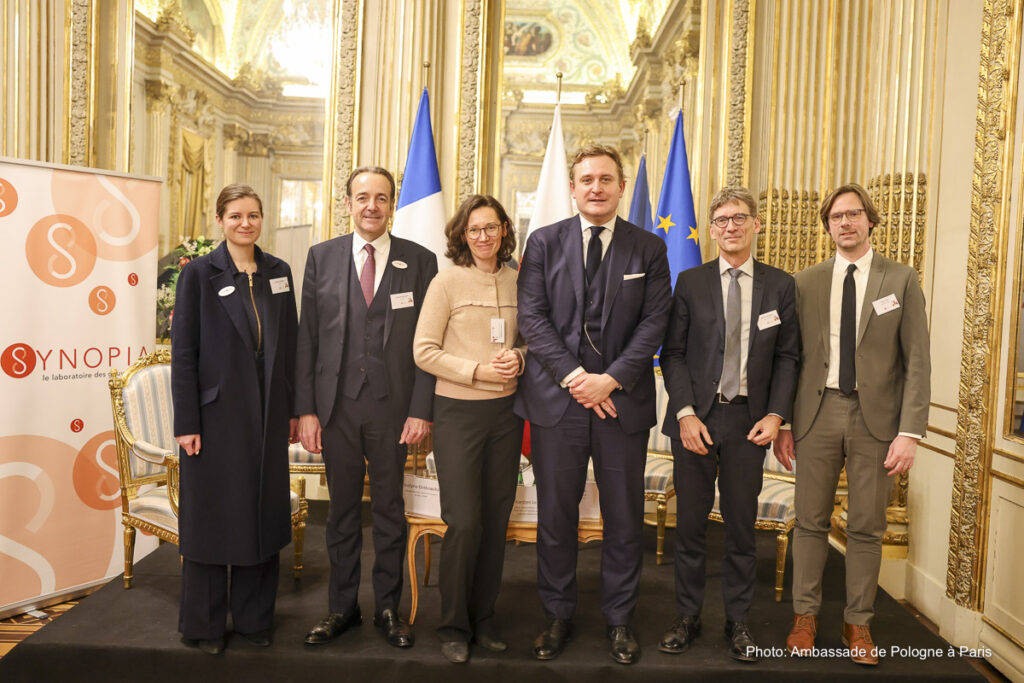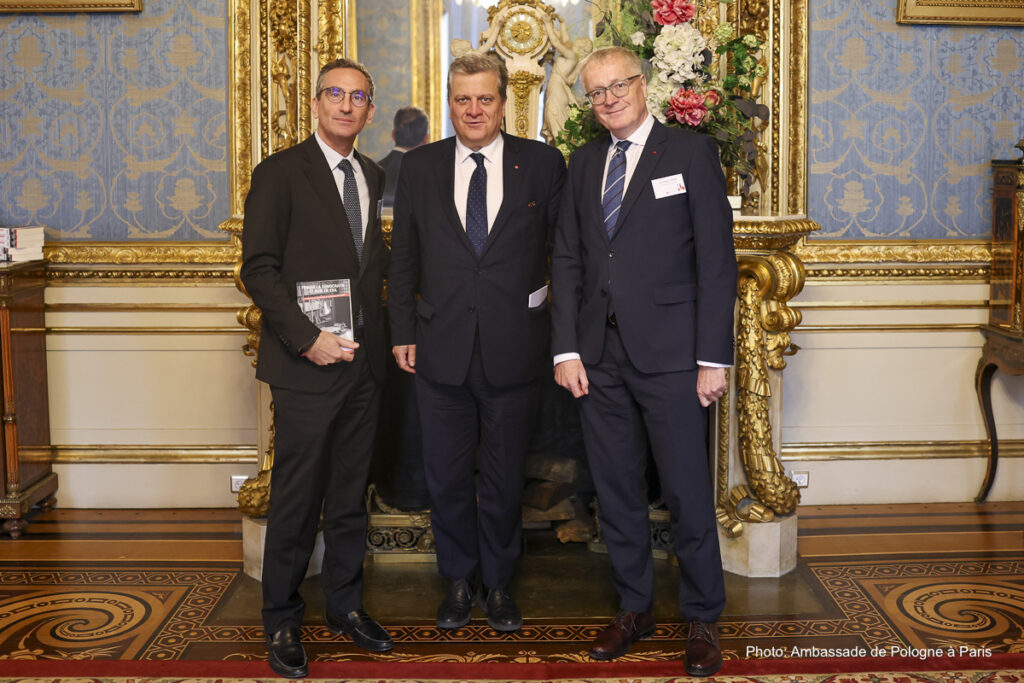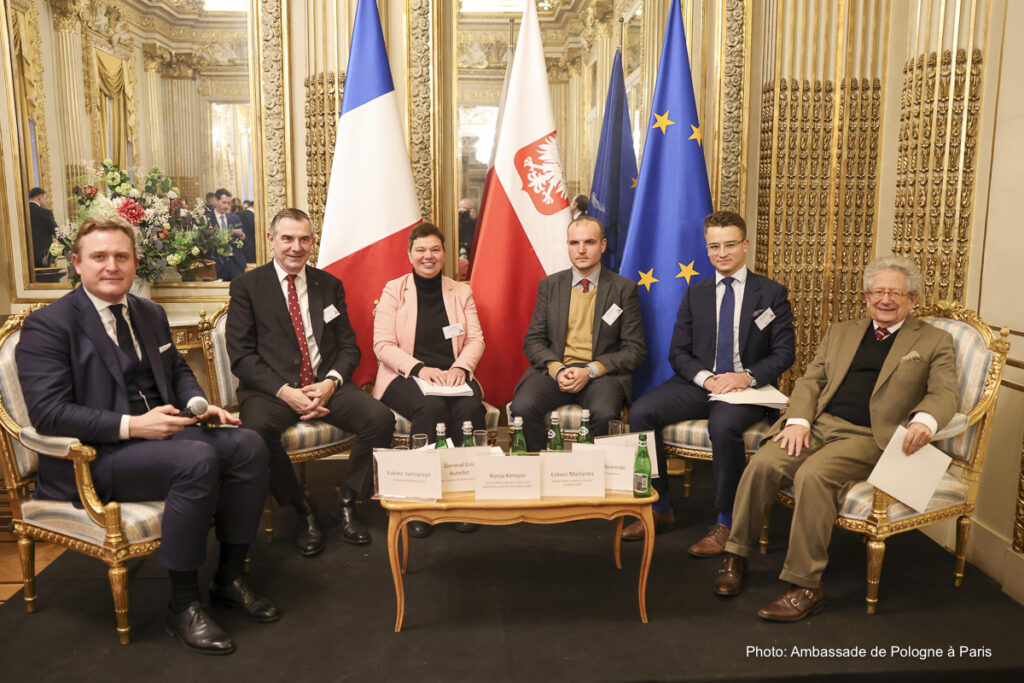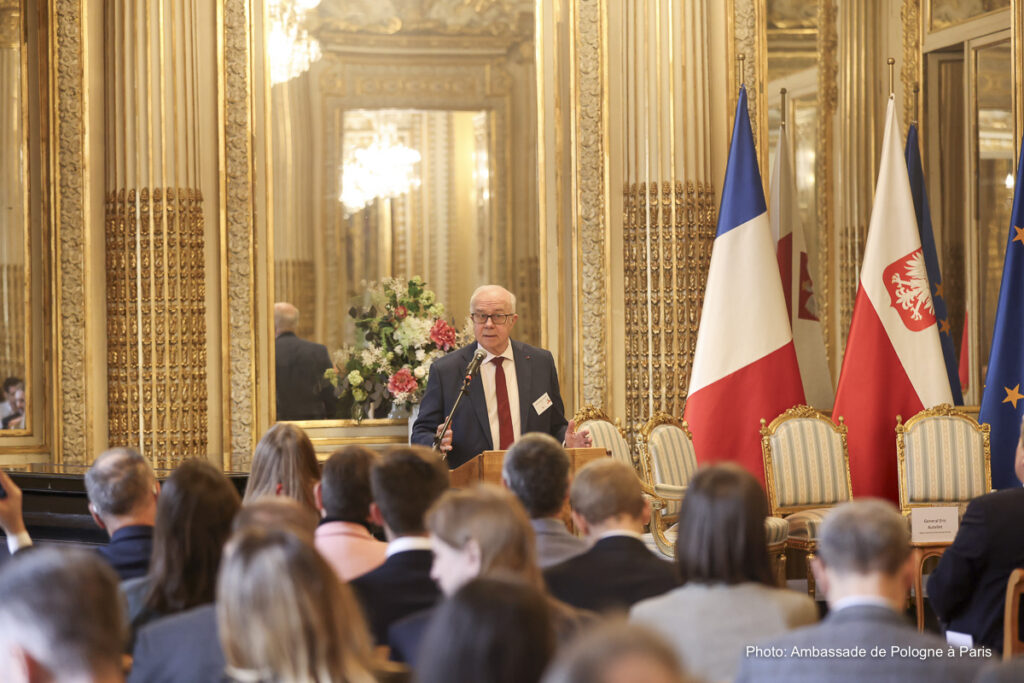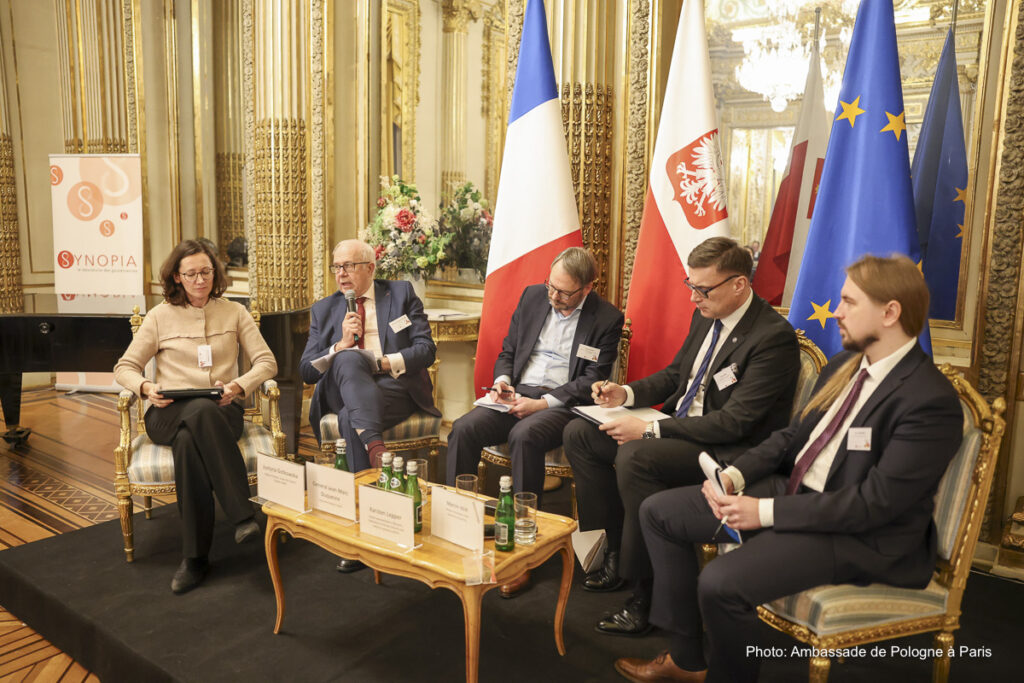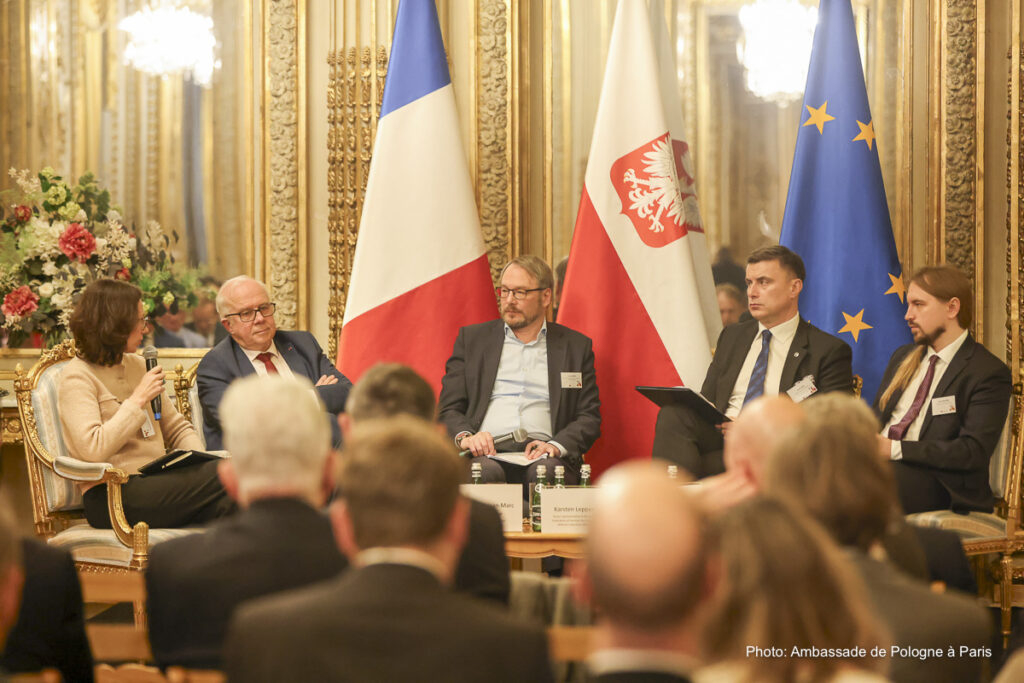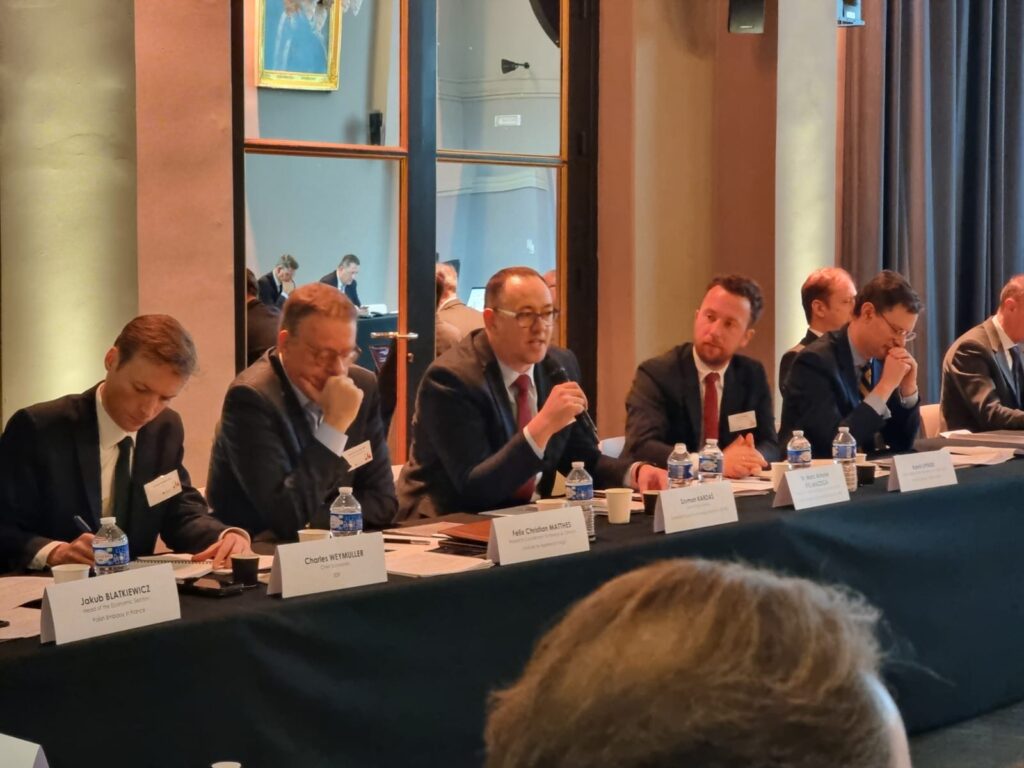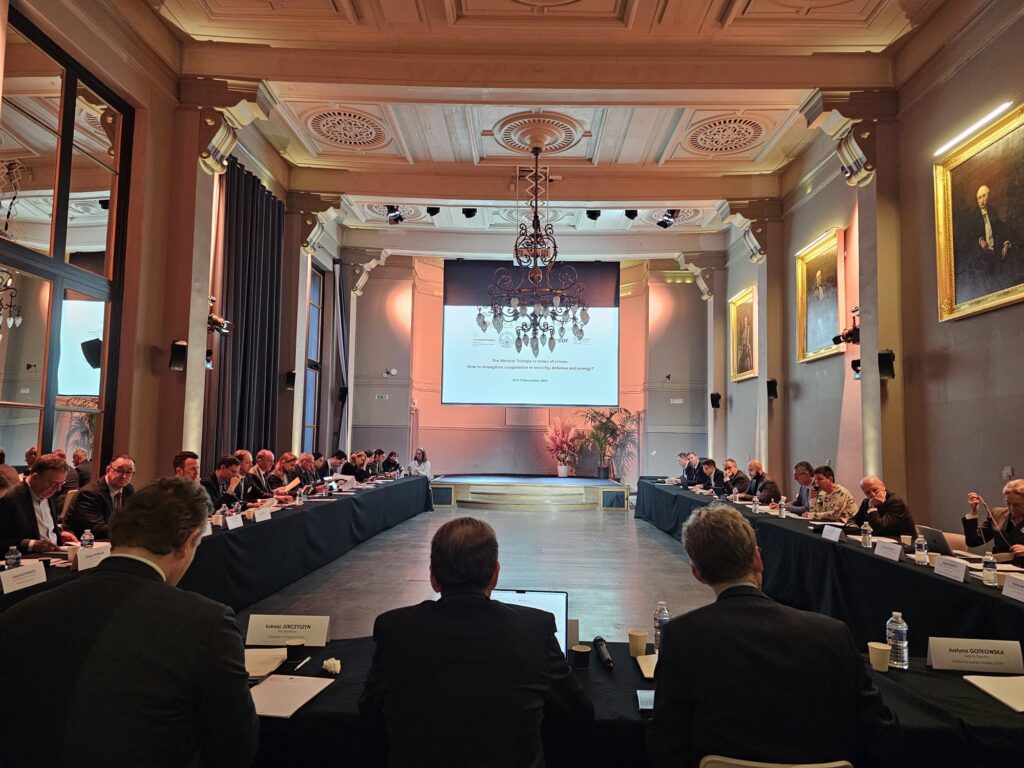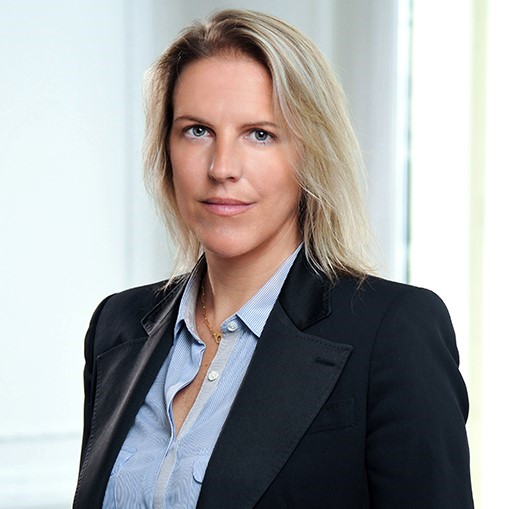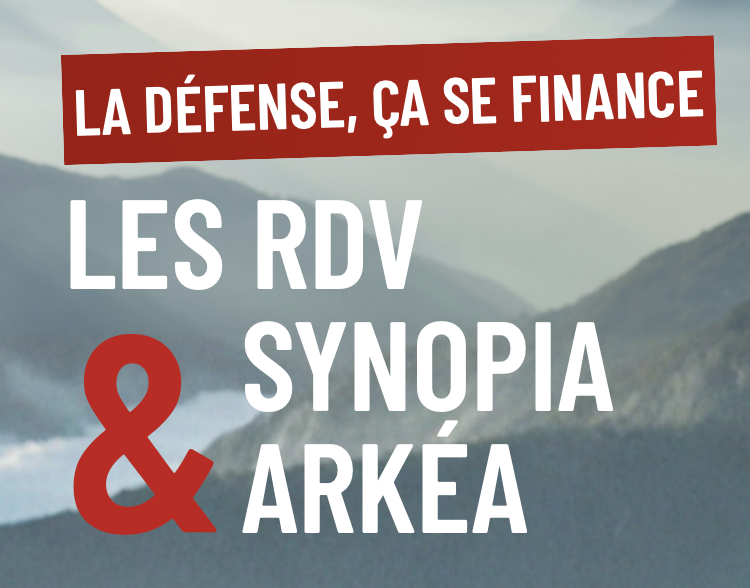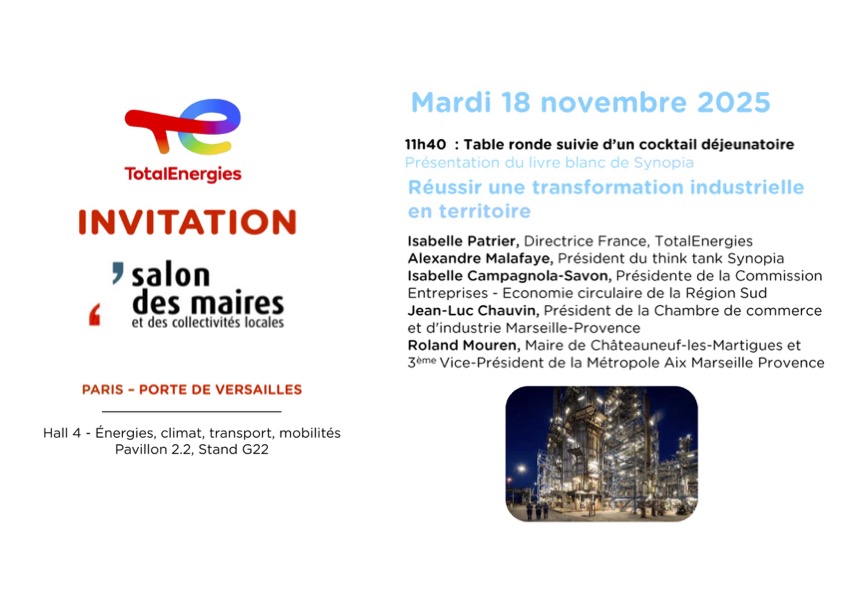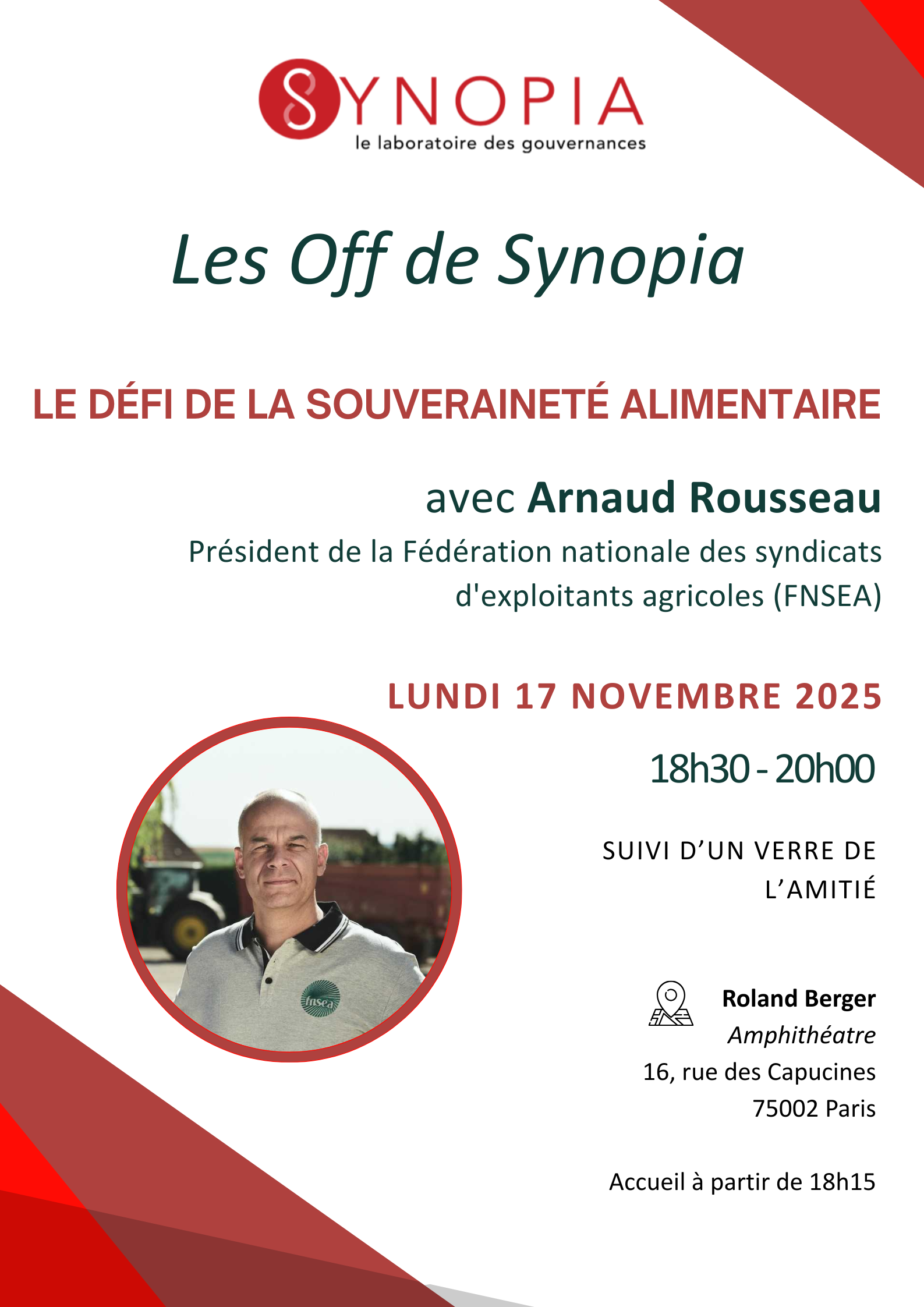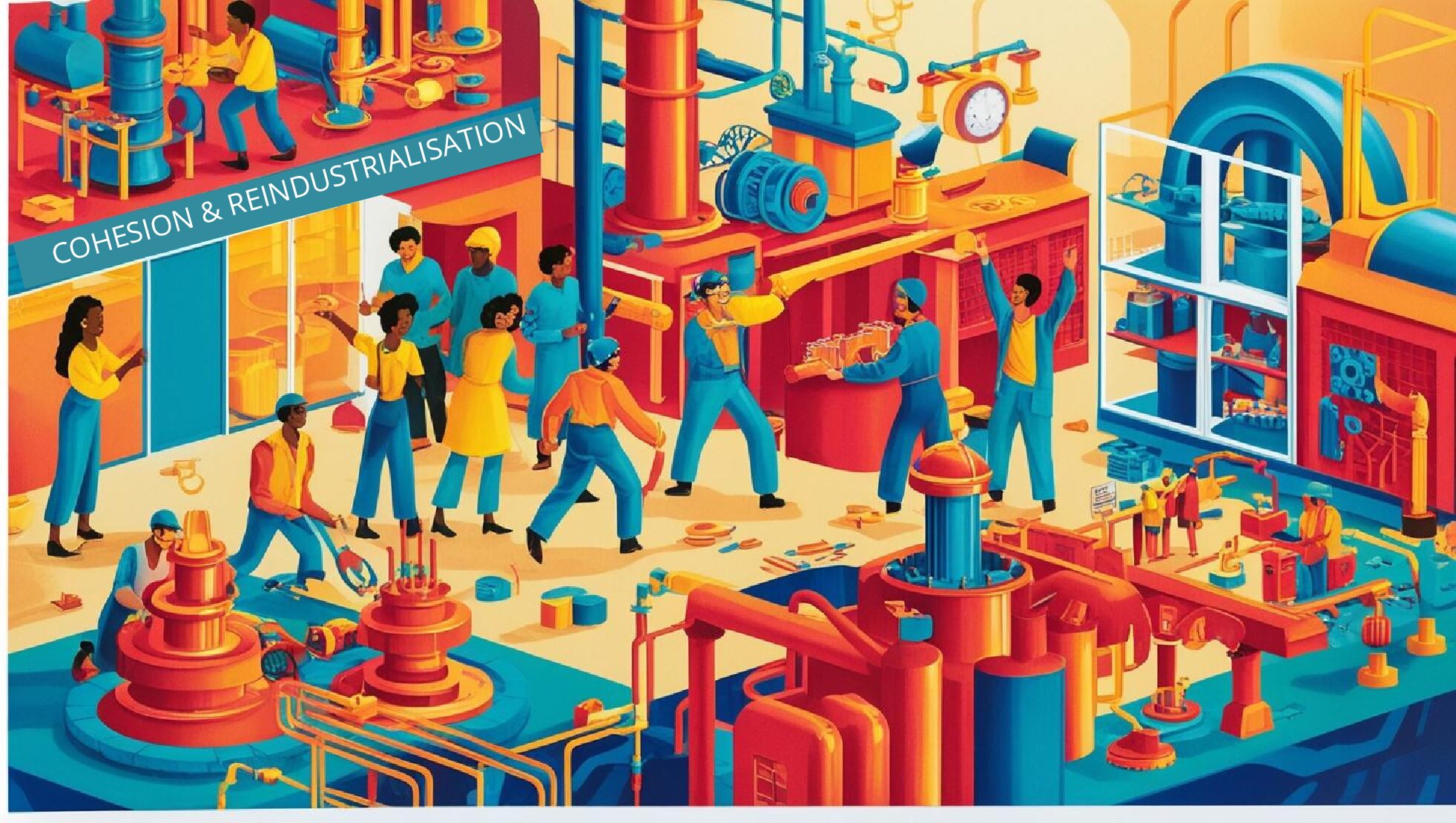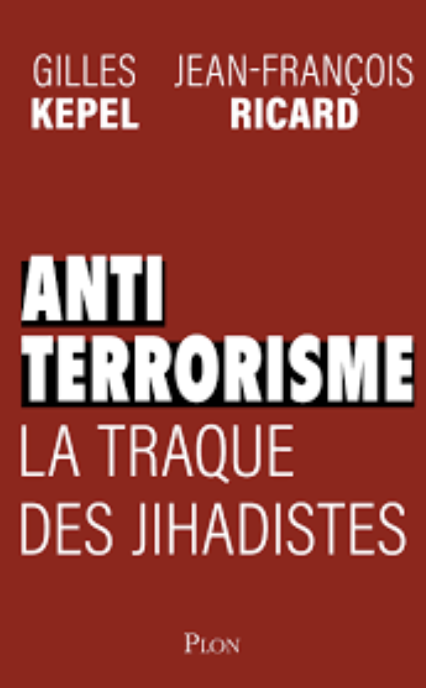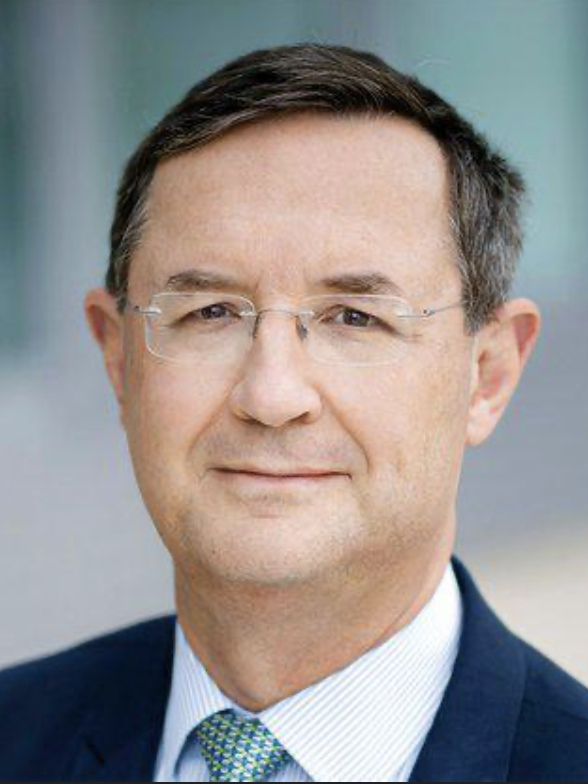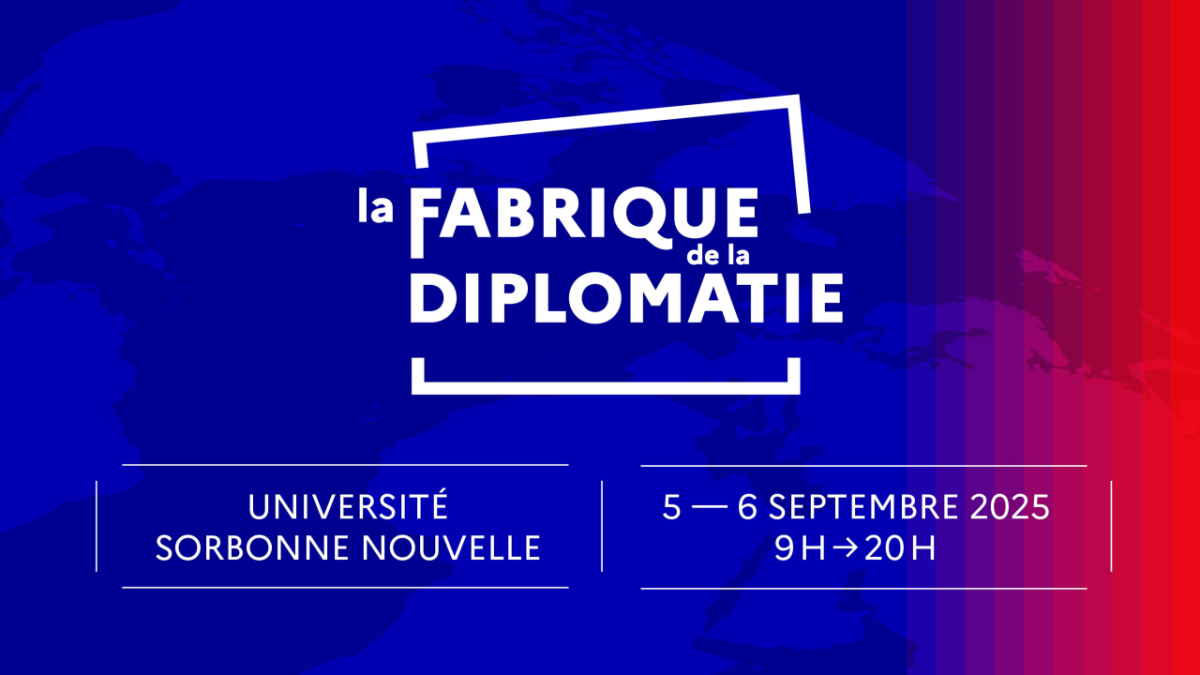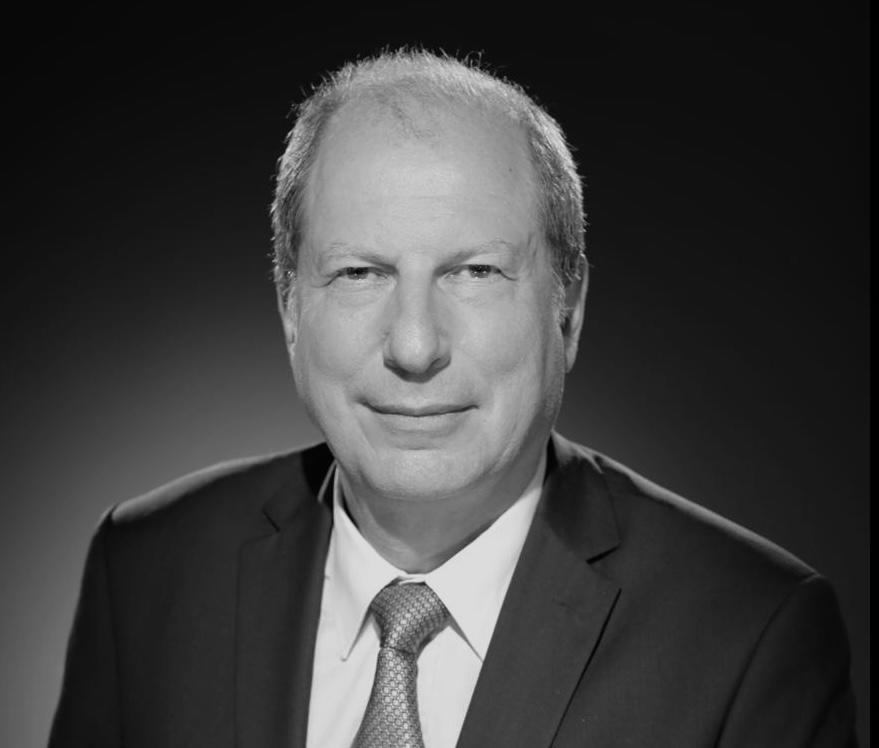The Weimar Triangle in times of crises and after major elections:
how to strengthen cooperation in security, defense and energy?
Tuesday 10th December 2024
at the Polish Embassy in Paris, 3 rue de Talleyrand, Paris 7ème
Wednesday 11th December 2024
at Hôtel de l’Industrie, 4 place Saint-Germain-des-Prés, Paris 6ème
The accumulation of crises and conflicts over the last ten years (Covid-19, Russian invasion of Ukraine, energy crisis, inflation, disinformation, etc.) has revealed a number of structural weaknesses in the European Union.
As a result of the industrial relocations that began in the 1970s, and of a number of strategic choices made by EU countries or the EU itself, Europe cannot but note the overdependence of its member states on other countries in areas of strategic interest: security, defense, energy, etc.
Today, against a backdrop of successive crises and fierce global competition, with the risk of downgrading faced by the European Union as a whole, it seems essential to pursue and strengthen the collective effort to reindustrialize the European continent, in order to preserve our ability to act.
In December 2024, six months will have passed since the European Parliament elections and one month after the US presidential election. The verdict of the polls could force Europeans to drastically strenghten their capacities and capabilities especially in the fields of security and energy.
Unless we risk endangering ourselves and weakening our collective position even further, it will be in Europe’s best interests to first develop closer and deeper cooperation between EU member states, along with maintaining the transatlantic link. Internal competition can be virtuous, but it must not take precedence over common objectives. It’s simply a question of survival. The Weimar Triangle – Germany, France and Poland – can spearhead these new cooperative ventures, in particular for the reindustrialization of the Continent, and encourage other European countries to follow suit.
On December 10th and 11th, Synopia, Stiftung Genshagen, Centre for Eastern Studies (OSW) and their partners propose to explore three major themes on which joint cooperation is possible and would open up the opportunity to overcome a number of existing divergences and focus on what is achievable together.
With one central question:
- How can we deepen our cooperation and rethink our industrial, military and security complementarities, so as to make the Weimar Triangle a real asset and strength for Europe?
1/ Security and defense.
This theme was the subject of an initial tripartite seminar organized by Synopia and Stiftung Genshagen in Paris on March 28, 2023, in partnership with GICAT, GIFAS and DGRIS, and attended by French, German and Polish politicians as well as representatives from the industry, think tanks and civil societies. The question of the seminar was: how can we deepen defense cooperation and rethink our complementarities? At the end of the meeting, a report was published with concrete recommendations.
In the December 2024 Seminar, together with the Warsaw-based Centre for Eastern Studies (OSW), we intend to pursue our discussions on the topic of defense and security issues along three very specific lines:
- Industrial cooperation in the air and space sector;
- Cooperation on the high seas: the challenge of maritime security;
- Cooperation in cybersecurity and cyberdefense.
2/ Energy
In addition, the Seminar’s focus will be on the theme of energy cooperation. This theme is central for several reasons: firstly, because it is the subject of ongoing negotiations as part of Europe’s energy transition policy, the Green deal ; secondly, because following the Russian invasion of Ukraine and the sanctions imposed on Russia, Europeans have had to overcome their dependences and find other sources of supply, sometimes at a high price; and thirdly, because energy is a strategic issue for everyone and an indispensable pillar of sovereignty.
During the December 2024 seminar, the question of energy will be addressed from the angle of industrial production, particularly electricity. Indeed, if we are to achieve the European objectives of carbon neutrality by 2050 and the end of combustion-powered vehicles by 2035, electricity production using « green » processes, such as nuclear power, is an urgent imperative. France ranks third in the world in terms of gross energy production, but first in terms of the percentage of energy used. Poland, for its part, recently commissioned the construction of its first nuclear power plant to an American company, in a bid to move away from its dependence on coal. Germany, meanwhile, has announced its intention to abandon coal by 2030 while sticking to its decision of a nuclear power phase-out.


Partners & co-organizers

